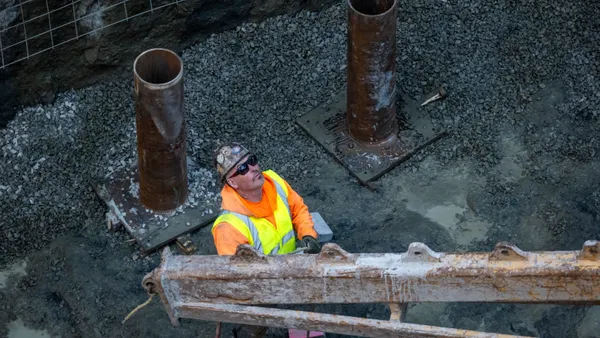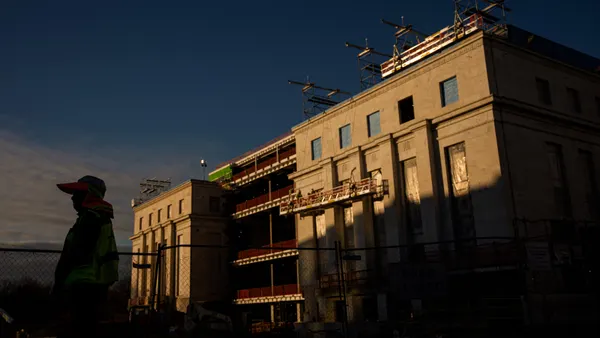Dive Brief:
- U.S. home values grew $1.1 trillion in 2015 to an estimated $28.5 trillion overall, according to real estate research firm and marketplace Zillow. The year’s growth rate of 4.1% fell short of 2014’s rate of approximately 6%. The dollar amount of the housing stock, Zillow reported, exceeded the 2015 third-quarter U.S. gross domestic product of $18.1 trillion by $10 trillion, highlighting the housing sector's importance to the U.S. economy.
- As the value of homes grew in 2015, so did the number of renter households, according to Zillow. The year saw a 1.8 million increase in renter households, and renters paid almost $20 billion more in 2015 than they did in 2014, bringing total rent paid last year to a total of $535 billion. According to Zillow, 2015 renters paid almost as much as the total budget of the Department of Defense, $575 billion.
- In November, home values rose 3.9% annually to a Zillow Home Value Index of $183,000. Led by Denver’s growth rate of 15.5%, Miami, Dallas, San Francisco, San Jose, CA, and Portland, OR, also saw home values increase by double digits. As they did throughout 2015, rents also increased in November at a 3.8% annual pace to a Zillow Rent Index of $1,382. Rents in San Francisco and Portland, OR, increased by double digits, while San Jose’s and Denver’s rental rate growth slowed to less than 10%.
Dive Insight:
One of the prominent storylines of 2015 was rising home prices. Combined with increasing rents, this price growth has created a cycle of frustration for many potential homebuyers who find it progressively difficult to save for a down payment and keep up with ever-increasing rent payments at the same time.
Hit particularly hard by this dilemma were first-time homebuyers, who, in addition to facing these obstacles, also found themselves struggling with student debt. Because of these and other social reasons, like postponed marriage and family, young people are living at home longer, contributing to the lowest share of first-time homebuyers in 30 years — approximately one-third of the housing market.
In fact, Zillow predicts that 2016 will see a continued upward march of both home prices and rental rates, leading to the further deterioration of housing affordability, particularly among renters and first-time homebuyers. This lack of affordability, according to Zillow, will force more buyers into the suburbs and eliminate homeownership as an option entirely for the bottom third of U.S. wage earners.
"Total home value growth slowed this year, but there was still a significant increase in overall value, and many markets are more valuable than they've ever been," Zillow Chief Economist Svenja Gudell said in a release. "At the same time, more renter households and rising rents combined to set new records in rental spending in 2015. Americans are spending a lot of money on housing, and that will make affordability an important issue next year."













